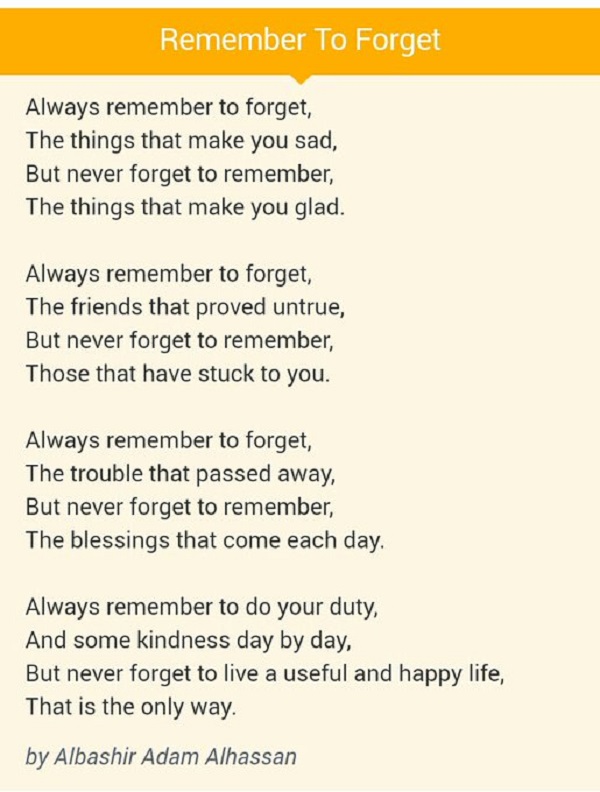US President Donald Trump, while speaking at a luncheon with Irish Prime Minister Edna Kenny, was quoted to have said:
As we stand together with our Irish friends, I’m reminded of that proverb — and this is a good one, this is one I like. I’ve heard it for many, many years and I love it. ‘Always remember to forget the friends that proved untrue. But never forget to remember those that have stuck by you.’ We know that, politically speaking. A lot of us know that, we know it well. It’s a great phrase.
The quote seems perfect, right? But here’s the kicker: the Irish have never heard the quote before! Many took to Twitter to express their confusion.
A few hours later, someone posted on Twitter this poem written about a decade ago by a Nigerian, Albashir Adam Alhassan.
trump proverb Have you noticed the problem, yet? No? Okay, go back to Trump’s quote, see the part in bold? Now, read the second stanza of the poem. Yes, we were just as shocked.
Apparently, the shock was going around as the poet himself, upon being contacted, was quoted to have said, “My sister just brought the news to me. I didn’t want to believe what she said initially. I posted those things when I was back in school, over 10 years ago. I never thought it would get to this level.”
“Maybe I shouldn’t have been a banker, maybe I should have been a poet all my life!” he joked.
However, to some, this is not strange at all. In a tweet, the Nigerian poet and fiction writer, Tolu Ogunlesi, pointed out that there is nothing particularly original about those lines from the poem, even going as far as to suggest Alhassan himself might be the real plagiarist in the story. After all, Trump did not claim the quote as his in the first place.
This of course brings to light an interesting topic of discussion. Often, a line of thought could occur to different poets and they would express that same thought in similar manner. How much of this can one say to really be plagiarism? As Ogunlesi noted, those lines are quite generic and could have been written by different writers since there is nothing unique about its arrangement of words.
Hence the question: at what point do we know if similarities in works are just plagiarism or mere coincidences? Let us know what you think.
And, oh, where on earth did Trump get the info that it is an Irish proverb?
*****
Post image from Olisa.TV.











cookie April 01, 2017 21:58
I am not exactly sure but I believe I have seen/heard this poem before 2007 which was when Alhassan supposedly uploaded/submitted to poemhunter. It sounds too familiar, like something I learned way back in school. CNN traced it back to 1936 as the work of Levi Furbush.. word for word. Though two writers can think the same way, the odds that it's the case here is too low. There are lots of plagiarized poems on poemhunter anyway, it's not a reliable source for original work. Even Gabriel Okara's "You laughed" poem is beautifully plagiarized there. By a Nigerian of course. I understand the human need to jump into any opportunities but in this age of internet one must be careful not to claim work as his if it isn't his. Just one google click and someone can make judgments on your integrity. There are many fact checkers who are willing to enter the sea to dig up facts. It's not a big deal in Nig but for the rest of the world it really is. It's better to paraphrase, or give simply credit to the source. And admit if it was a mistake. I learned the hard way when I moved to the USA.